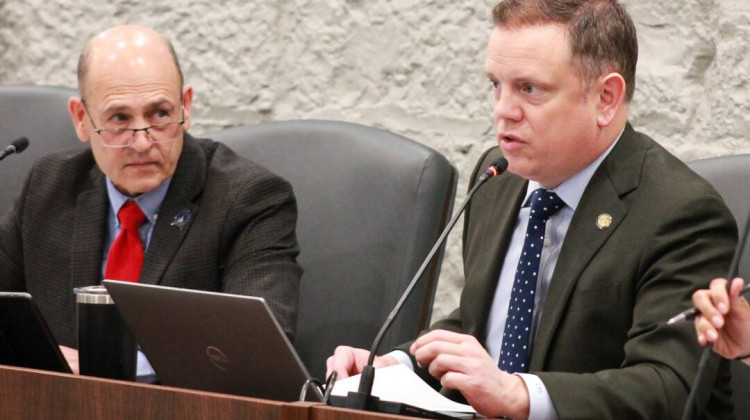
Seeds being arranged on filter paper for a germination test in the International Maize and Wheat Improvement Center's Seed Health Laboratory, 2007.
(CIMMYT/Flickr)Farmers will have to pay more to get their seed tested by the state if an Indiana Senate bill, SB 129, becomes law. It passed unanimously in committee on Monday.
The Office of Indiana State Chemist offers to test seed for purity and germination, but only charges about half as much as what private companies do.
John Baugh is with Purdue University’s college of agriculture — where the OISC is located. He said the low fees make it hard for the agency to pay for testing materials and labor on a service it isn’t required to provide.
“We are too cheap. We’re losing money every time we do one of these tests and so it's time for us to be able to change it. The issue with the rule making process is 18 months. By the time we do it, we have to turn around and do it again," Baugh said.
Join the conversation and sign up for the Indiana Two-Way. Text "Indiana" to 73224. Your comments and questions in response to our weekly text help us find the answers you need on statewide issues.
Among other things, the bill would allow the state chemist to keep fees in line with industry standards and change them more often.
Several groups expressed support for the bill including the Indiana Farm Bureau, the Agribusiness Council of Indiana, and the non-profit Indiana Crop Improvement Association — which also tests seed.
A similar bill proposed in the state House, HB 1147, also passed committee.
Contact reporter Rebecca at rthiele@iu.edu or follow her on Twitter at @beckythiele.
Indiana Environmental reporting is supported by the Environmental Resilience Institute, an Indiana University Grand Challenge project developing Indiana-specific projections and informed responses to problems of environmental change.
 DONATE
DONATE






 Support WFYI. We can't do it without you.
Support WFYI. We can't do it without you.